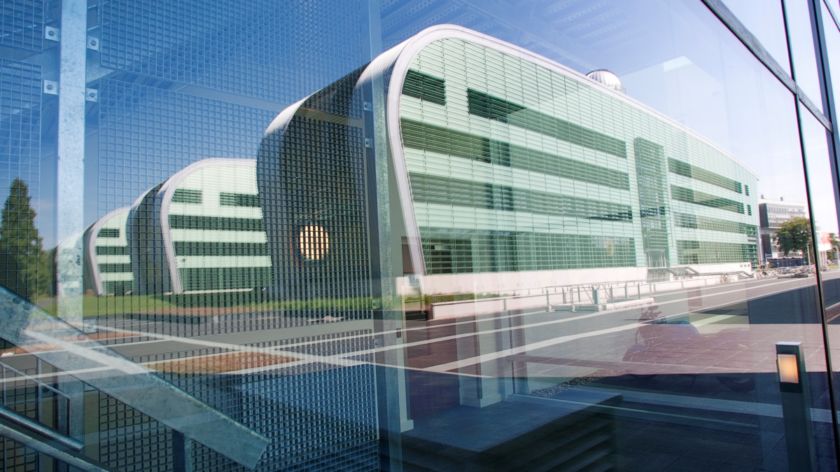Joint Assembly: ‘Pay cleaners a minimum of 14 euros an hour’
-
 Het Huygensgebouw. Foto: Dick van Aalst
Het Huygensgebouw. Foto: Dick van Aalst
Pay all university employees a minimum of 14 euros an hour, regardless of whether they are employed by the university or an external partner. That is what the participation council of Radboud University argues for. ‘Our cleaners do not earn enough to make ends meet.’
All employees working at Radboud University should at least be paid a minimum of 14 euros per hour (see box). The entire participation council of Radboud University argues for this. In a letter, sent to the Executive Board on 6 October, they call for immediate action.
Security guards and receptionists
The call to action is meant specifically for employees of external businesses. Employees at the university or Campus Detachering already earn a minimum of 14 euros an hour.

For outsourced services, the situation is different. Especially cleaners who currently work for the university via cleaning company Asito earn too little to make ends meet – even if they work full-time, according to signers of the letter. Employees of other outsourced services, such as security guards and receptionists, are also sometimes paid less than 14 euros an hour. However, a new security collective labour agreement will soon be in effect, which guarantees a minimum wage of 14 euros an hour for them.
The appeal to the board was not made at the request of the cleaners at Asito, says Amarins Thiecke, chair of the Works Council. ‘But broader research shows that 14 euros is the minimum to make ends meet. Personally I wonder whether this amount is still sufficient in these times of high energy prices and increasing inflation.’
Subsidiary
The letter writers suggest three ways for the Executive Board to fix the issue, according to them. For instance, in new contracts, the university could make it a condition that external partners pay a minimum wage of 14 euros to their employees. ‘In the meantime, the university could pay a bonus to employees of already outsourced services, to raise the lowest wages’, says Thiecke.
According to the participation council, it is also possible to employ all personnel on campus
A second solution would be to hire cleaners and security guards via a subsidiary of the university in the future, such as Campus Detachering. The employees would not officially be employed by the university – which is cheaper – but the university would have a say in their working conditions. Thiecke: ‘This way, you create a limited liability company (LLC, ed.) with its own rules, to which the collective labour agreement of Dutch universities applies.’ Finally, the participation council thinks it is also possible to employ all personnel on campus.
Harmonisation
The discussion on whether or not to outsource services has been going on for some time now in the Joint Assembly at Radboud University. A few years ago, the Executive Board wanted to harmonise the university cleaning service. In doing so, the college seemed to be banking on outsourcing the cleaning services of the Faculty of Science, the only faculty with its own cleaning service.
Partly due to critical questions from the participation council back then, the board opted for phased outsourcing: current employees could stay until the end of their contract, new employees were hired via cleaning company Asito.
Nevertheless, Thiecke regrets the university still not having developed a policy. ‘As a result, there still are university employees earning less than 14 euros an hour. A harmonisation could change that.’
Further steps
What if the Executive Board does not answer the participation council’s call? ‘Then we will consider next steps’, says Thiecke. ‘For now, we want to send the message that employees of outsourced services are equal to other employees on campus.’
The Executive Board has received the appeal from the participation council, says a university spokesperson. ‘As agreed in the agenda meeting, the board will respond on 7 November.’
Minimum wage of 14 euros
In the run-up to the elections in March 2021, trade union FNV campaigned for the implementation of a minimum wage of 14 euros in the Netherlands. According to the union, more and more Dutch people had trouble making ends meet, while the Netherlands is extremely wealthy.
With a minimum wage of 14 euros, according to the union, many people living in poverty would benefit, preventing the gap between rich and poor from growing further. The appeal to the Executive Board is an initiative by the FNV faction in the Joint Assembly. The letter was signed by all other factions within the Works Council, and by several factions within the University Student Council.
This article was translated by Jan Scholten.



